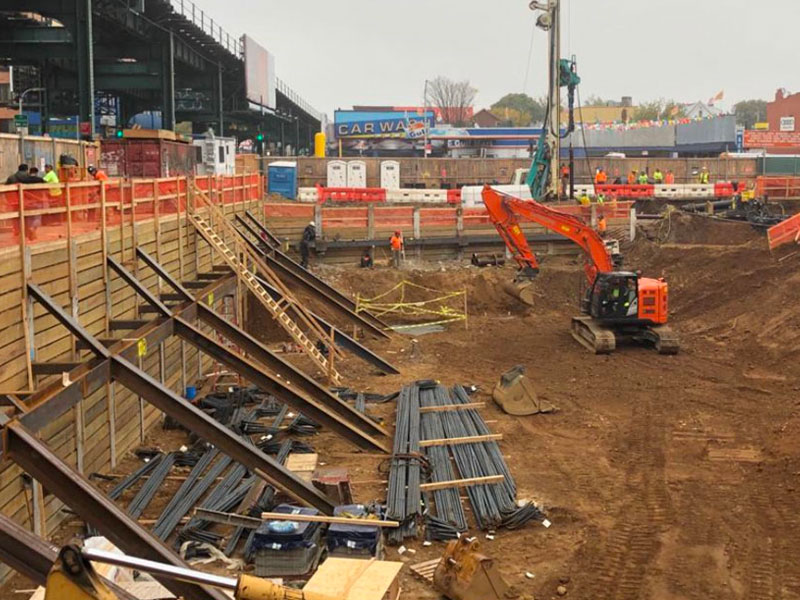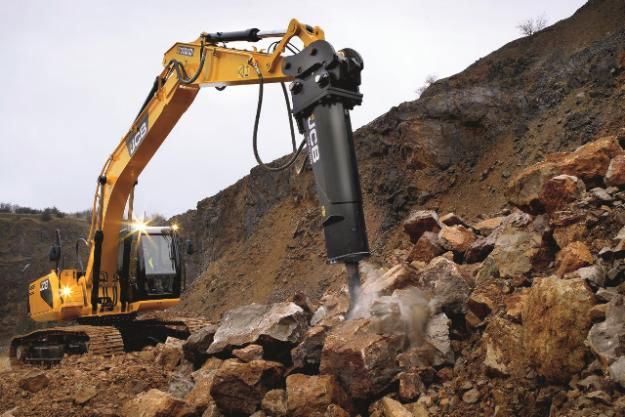Residential Excavating Ohio - Specialized Excavation for Ohio Houses
Residential Excavating Ohio - Specialized Excavation for Ohio Houses
Blog Article
Comprehensive Excavation Strategies: Mastering the Fundamentals for Success
The mindful preparation, exact implementation, and careful interest to detail needed in excavation jobs demand a detailed approach that encompasses various basic aspects. The real mastery exists not merely in recognizing these fundamentals but in seamlessly integrating them to navigate the intricacies of excavation jobs with finesse.
Understanding Excavation Project Preparation

The initial phase of any excavation job is the planning phase, where important decisions are made that can substantially influence the result of the task. Comprehending the job spending plan, timeline, and extent restraints is crucial for producing a thorough excavation strategy that makes certain the task's success.
One key element of excavation project planning is the growth of a comprehensive timeline that describes the sequence of target dates, turning points, and tasks. This timeline works as a roadmap for the job team, allowing them to track progress and make necessary modifications to guarantee the project remains on timetable. In addition, a well-defined budget that makes up all costs, consisting of tools service, labor expenses, and materials, is crucial for staying clear of expense overruns and delays. By carefully taking into consideration all these aspects during the preparation phase, excavation projects can be executed successfully and successfully, resulting in effective results.
Dirt Evaluation and Site Evaluation
Carrying out complete dirt evaluation and site assessment is a crucial action in the preparation phase of any kind of excavation project. Soil analysis includes establishing the composition, structure, and residential properties of the soil at the excavation site. This info is vital for understanding the soil's bearing capability, wetness web content, and potential for disintegration, which are vital consider determining the excavation approaches and equipment needed for the project.
Website analysis exceeds soil evaluation and encompasses a broader evaluation of the total website problems. This evaluation consists of determining any type of possible risks, such as underground energies, environmental problems, or unsteady surface, that can impact the excavation procedure. By extensively reviewing the website, project managers can create reliable excavation approaches that focus on safety and security, performance, and environmental security.
Utilizing sophisticated innovations like ground-penetrating radar, soil sampling, and drone surveys can improve the accuracy and effectiveness of dirt evaluation and site analysis. Spending time and resources in these preliminary steps can ultimately save time and avoid pricey delays or issues during the excavation procedure.
Tools Selection and Usage
Effective excavation projects rely greatly on critical equipment choice and application to guarantee optimal performance and efficiency. Selecting the appropriate tools for the job is important in optimizing performance and decreasing downtime. Elements such as the type of soil, depth of excavation, and project range play a significant duty in establishing review the most ideal equipment for the job at hand.

Along with selecting the suitable equipment, proper usage is essential to job success. Operators should be trained to deal with the equipment safely and efficiently - dump truck companies in ohio. Normal upkeep checks and timely repair services assist stop malfunctions and make sure constant performance throughout the project
Safety Actions and Rules Conformity
In the realm of excavation projects, prioritizing precaution and compliance with laws is paramount to ensuring a legitimately audio and protected operational setting. Safety measures incorporate a variety of practices, consisting of carrying out extensive site analyses, carrying out proper signs and obstacles, and providing ample security training for all personnel involved in the excavation procedure. Adherence to laws, such as OSHA requirements in the United States, makes certain that the excavation task fulfills the essential requirements to protect employees, bystanders, and the surrounding atmosphere.

Tracking Progress and Adjusting Strategies
Exactly how can project managers properly track the development of excavation tasks and adapt their techniques as necessary to optimize results? Surveillance progress is crucial for guaranteeing that excavation jobs stay on track and satisfy target dates.

Final Thought
To conclude, mastering the principles of detailed excavation techniques is essential for the success of any kind of job. By understanding task planning, assessing dirt and site problems, selecting ideal devices, following safety and security policies, and monitoring progression, project supervisors site can make sure a smooth and reliable excavation procedure. Applying these approaches will lead to effective end results and reduce possible risks or troubles during the excavation job.
The initial phase of any kind of excavation project is the planning phase, where crucial choices are made that can significantly affect the outcome of the job. Understanding the job extent, timeline, and budget restrictions is critical for creating an extensive excavation strategy that makes sure the task's success.
How can project managers successfully track the advancement of excavation projects and adapt their techniques appropriately to maximize end results? By very closely monitoring development and being prepared to adjust methods, job supervisors can enhance the overall success of excavation projects.
By understanding project planning, analyzing soil and site problems, picking appropriate equipment, complying with safety regulations, and monitoring progress, project supervisors can ensure a smooth and efficient excavation procedure.
Report this page